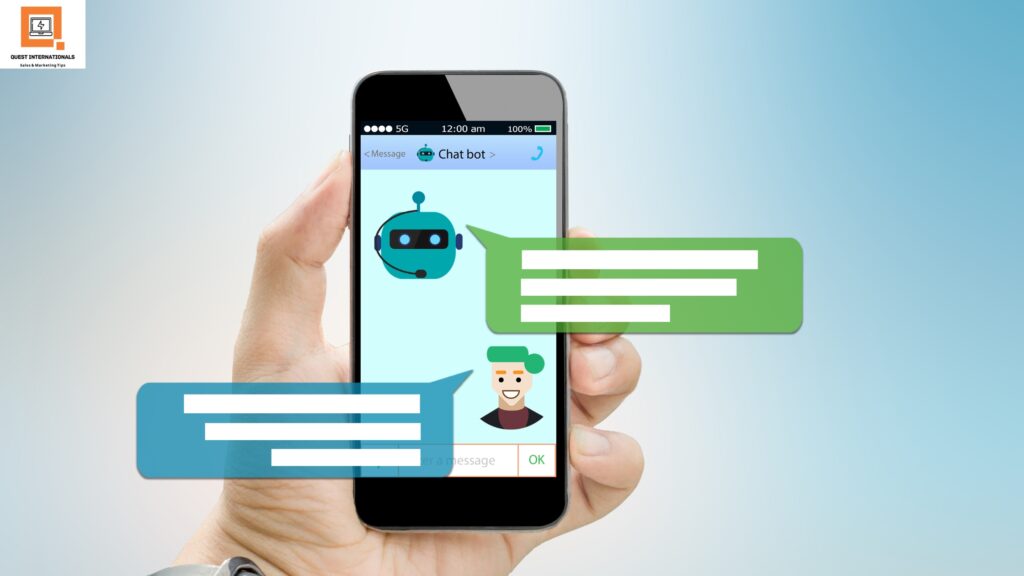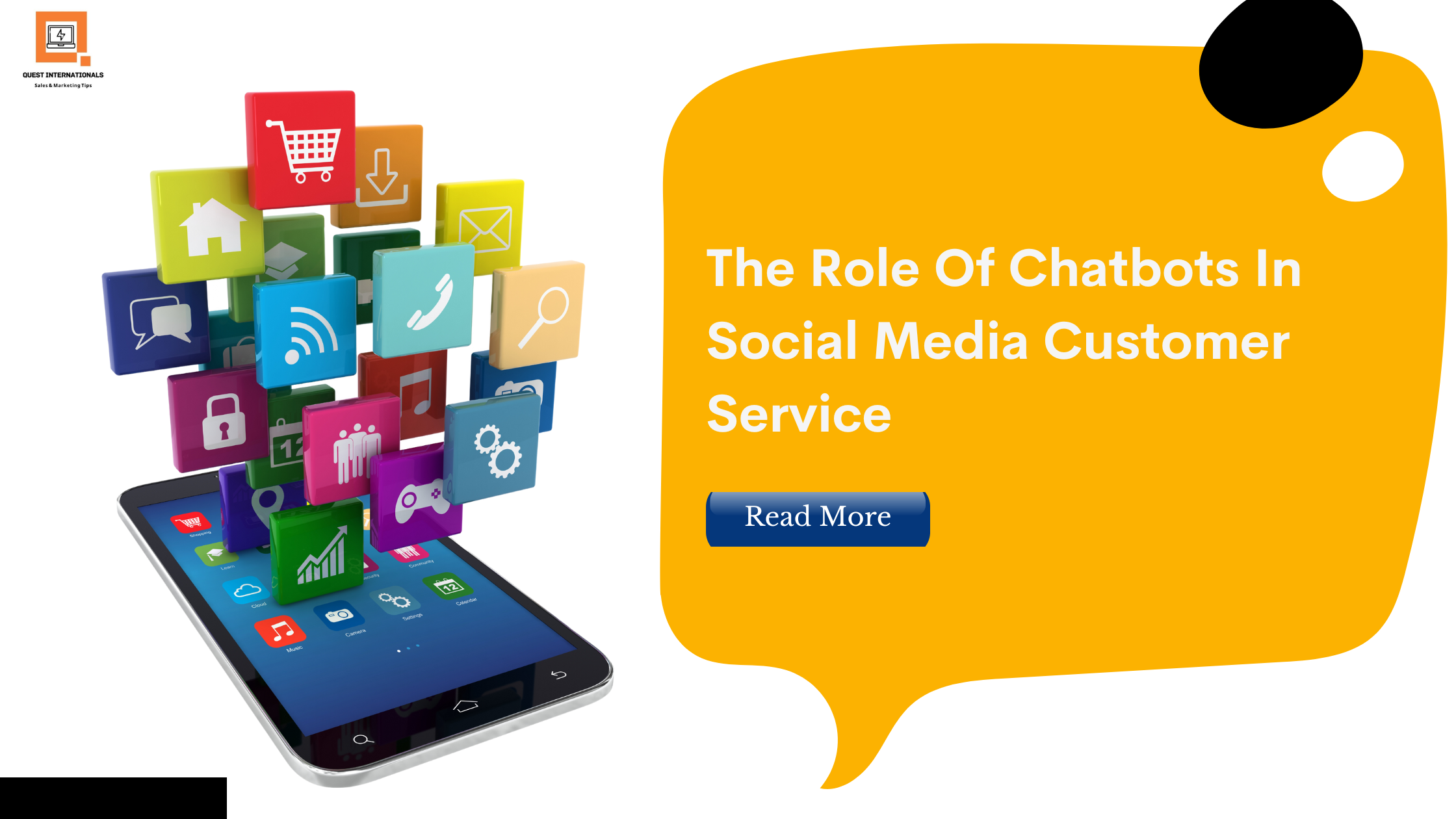Chatbots are computer programs designed to simulate conversation with human users, using natural language processing (NLP) and artificial intelligence (AI) to understand and respond to customer inquiries. Chatbots have become increasingly relevant in social media customer service as more and more customers prefer to interact with businesses through social media channels.
Implementing chatbots in social media platforms is crucial for businesses looking to provide efficient, timely, and personalized customer service. Chatbots can handle routine and repetitive inquiries, freeing up customer service representatives to focus on more complex issues. By providing 24/7 availability, chatbots ensure that customers can receive support even outside of business hours. Chatbots also help to maintain consistency in responses across multiple channels and provide a positive customer experience, ultimately leading to increased customer satisfaction and retention.
The purpose of this blog is to provide an overview of the benefits of chatbots in social media customer service and to highlight the best tools for implementing them. We will also discuss important considerations to keep in mind when choosing a chatbot tool and showcase successful case studies of chatbot implementations in social media customer service. By the end of this blog, readers will have a better understanding of the role of chatbots in social media customer service and the tools available to implement them effectively.
Benefits of using chatbots in social media Customer service

1. Increased efficiency and cost-effectiveness: Chatbots can handle routine and repetitive customer inquiries, such as FAQs, order tracking, and product information, without human intervention. This frees up customer service representatives to focus on more complex issues that require human expertise, reducing response times and increasing overall efficiency. Additionally, chatbots can handle multiple inquiries at once, making it more cost-effective for businesses to provide customer support.
2. 24/7 availability: Chatbots can provide customer support round the clock, even outside of business hours. This ensures that customers can receive help and support whenever they need it, leading to improved customer satisfaction and retention.
3. Personalization of customer interactions: Chatbots can be programmed to provide personalized responses based on customer data and history. For example, a chatbot can address a customer by their name or recommend products based on their previous purchases. This personalization can make customers feel valued and improve their overall experience with the business.
4. Consistency in responses: Chatbots can ensure consistency in responses across multiple channels, such as social media platforms and websites. This consistency helps to build trust and reliability with customers, leading to increased customer satisfaction and retention.
5. Improved customer satisfaction and retention: Chatbots can provide fast and efficient customer support, leading to improved customer satisfaction and retention. When customers receive timely and accurate responses to their inquiries, they are more likely to have a positive experience with the business and return for future purchases.
Overall, chatbots offer several benefits to businesses looking to provide efficient and personalized customer support through social media channels. By implementing chatbots in their customer service strategy, businesses can improve their customer satisfaction, retention, and bottom line.
How chatbots work in social media customer service
Chatbots have become a popular tool for businesses to provide efficient and personalized customer service through social media platforms. But how do they actually work?
At their core, chatbots use natural language processing (NLP) and artificial intelligence (AI) to communicate with customers in a conversational tone. NLP algorithms allow chatbots to understand and interpret human language, while AI enables them to learn and adapt based on customer interactions and feedback. This means that chatbots can provide personalized responses to customer inquiries, such as recommending products based on their previous purchases or addressing them by their name.
To work effectively in social media customer service, chatbots must also be integrated with the relevant social media platforms. This integration allows chatbots to receive and respond to customer inquiries in real-time through the social media platform’s messaging interface. Businesses can also use chatbot integrations to access customer data and analytics, allowing them to track and measure the success of their chatbot strategy.
Overall, chatbots are a powerful tool for businesses looking to improve their customer service operations through social media platforms. By leveraging the capabilities of NLP, AI, and social media platform integrations, businesses can provide efficient and personalized support to their customers, leading to improved customer satisfaction and retention.
Best tools for implementing
1. Chatfuel: Chatfuel is a popular chatbot platform that allows businesses to build custom chatbots for Facebook Messenger and other messaging platforms. The platform offers a drag-and-drop interface for creating chatbot workflows, as well as integrations with third-party services like Shopify and Zapier. Chatfuel also includes a variety of pre-built chatbot templates and a robust analytics dashboard for tracking chatbot performance.
2. ManyChat: ManyChat is another popular chatbot platform that specializes in Facebook Messenger chatbots. The platform offers a visual chatbot builder with a variety of templates and integrations with other marketing tools, such as email marketing and SMS messaging. ManyChat also includes features like audience segmentation, automated broadcasts, and customer tagging for personalized messaging.
3. Tars: Tars is a chatbot platform that focuses on creating conversational landing pages and lead-generation chatbots. The platform offers a visual chatbot builder with pre-built templates and integrations with third-party services like Salesforce and Mailchimp. Tars also includes features like A/B testing, analytics tracking, and custom JavaScript code for advanced functionality.
Overall, these chatbot platforms offer businesses a range of features and capabilities for implementing chatbots in social media customer service. By choosing the right platform and leveraging the power of chatbots, businesses can provide personalized, efficient support to their customers, leading to improved satisfaction and retention.
Case studies of successful chatbot
1. H&M: The fashion retailer H&M launched a chatbot on Kik, a messaging app, to help customers browse and purchase products. The chatbot used natural language processing to understand customer inquiries and provide personalized product recommendations. H&M reported that the chatbot increased engagement with younger customers and led to a 70% higher click-through rate than traditional marketing campaigns.
2. Domino’s Pizza: Domino’s Pizza launched a chatbot on Facebook Messenger to allow customers to place and track their pizza orders. The chatbot used machine learning to understand complex order requests and provide real-time order updates. Domino’s reported that the chatbot reduced the average order time by four minutes and led to a 98% increase in mobile orders.
3. Amtrak: Amtrak, the US-based passenger train service, launched a chatbot on Facebook Messenger to provide real-time customer support. The chatbot used natural language processing to understand customer inquiries and provide personalized travel information. Amtrak reported that the chatbot reduced response times by 75% and led to a 25% increase in customer satisfaction.
These case studies demonstrate the potential benefits of chatbots in social media customer service, including increased customer engagement, improved efficiency, and higher customer satisfaction. By leveraging the power of chatbots and integrating them with social media platforms, businesses can create personalized, effective customer service experiences that improve their bottom line.
Conclusion
Chatbots have become an essential tool for providing efficient and personalized customer service on social media platforms. By leveraging natural language processing, machine learning, and AI, chatbots can help businesses streamline their customer support operations, reduce response times, and improve customer satisfaction and retention.
However, it’s important to choose the right chatbot tool that aligns with your business needs and customer expectations. Platforms like Chatfuel, ManyChat, and Tars offer a range of features and integrations for creating custom chatbots, but it’s important to evaluate each platform based on your specific requirements.
In summary, implementing chatbots in social media customer service can be a game-changer for businesses looking to improve their customer experience and gain a competitive advantage. By choosing the right chatbot tool and leveraging its capabilities, businesses can create personalized, efficient, and engaging interactions with their customers on social media platforms.




